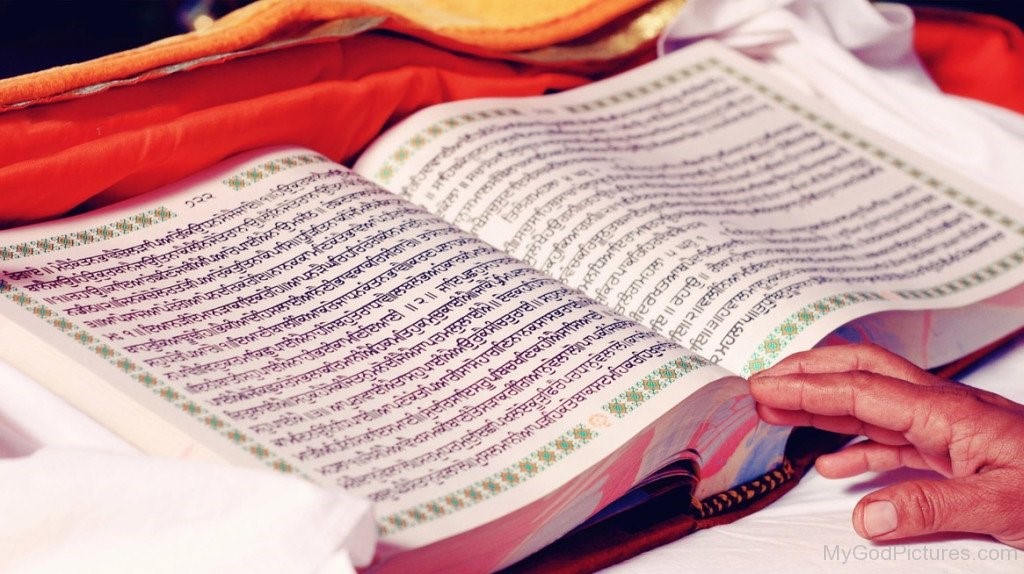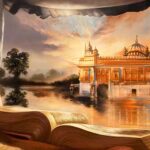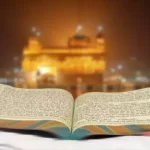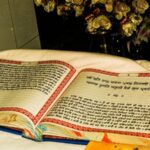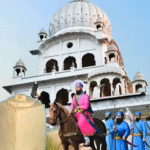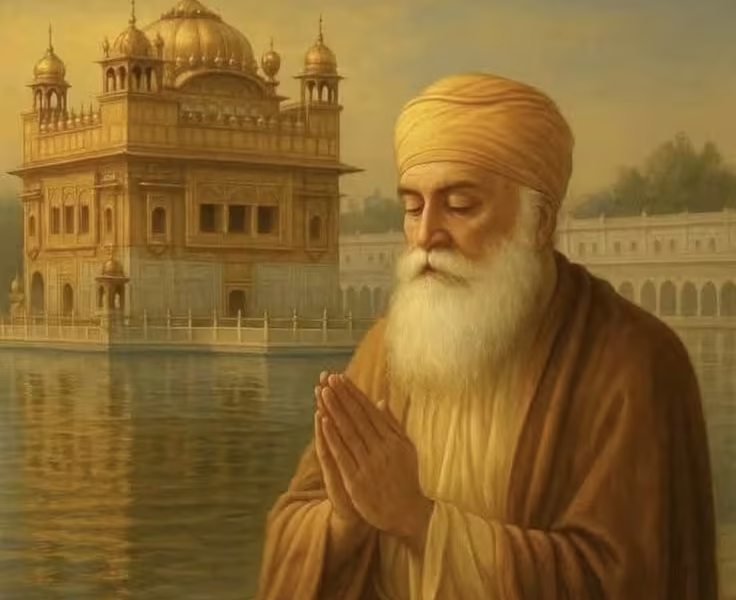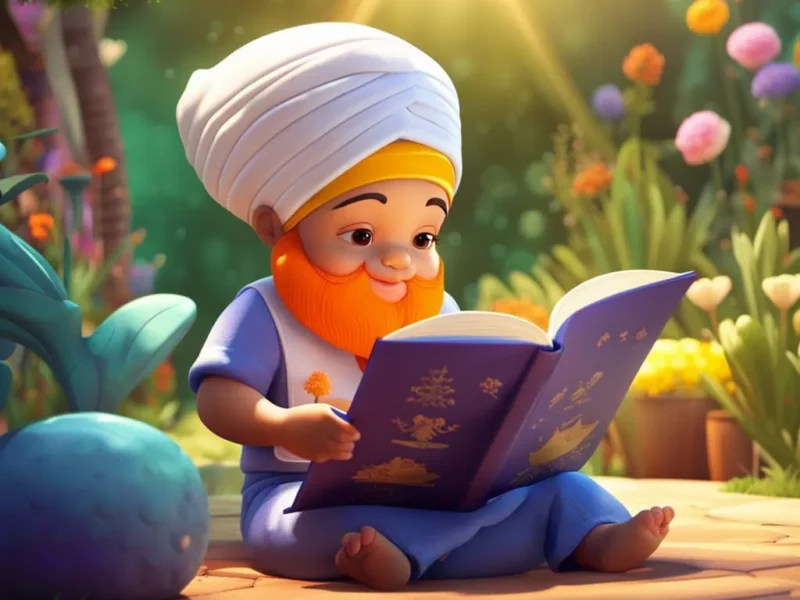The Guru Granth Sahib is a collection of hymns, poetry, shabads, and other works from a variety of sources, along with the Gurus and Hindu and Muslim authors. Every copy of the Guru Granth Sahib has the same 1,430 pages. The Guru Granth Sahib is more than just a Sikhism sacred book. It’s also known as the “Living Guru.” Guru Gobind Singh stated that there will be no more physical Gurus and that the Guru Granth Sahib will be the Immortal Guru just before he departed. It includes the Gurus’ spoken utterances. This is termed Gurbani, which means “from the mouth of the Guru.” It is thought to be God’s word, and as such, it is flawless. It’s composed in the Gurmukhi script.
Because the Guru Granth Sahib is regarded as the Eternal Guru, Sikhs believe it should be revered similarly to living Gurus. This necessitates treating it with the highest respect. Upon visiting the gurdwara, Sikhs take off their footwear and wash their hands. In the sight of the Guru Granth Sahib, Sikh’s don headscarves within the gurdwara. In the Darbar Sahib, the Sangat sits on the floor to keep their heads from rising above the Guru Granth Sahib. When Sikhs reach the prayer hall, they offer service to the Guru Granth Sahib. The Guru Granth Sahib is never forgotten by Sikhs. A granthi is a person who has been given the task of reading the Guru Granth Sahib. A chauri, a unique fan made of yak hair, is whirled over the Guru Granth Sahib while it is being recited. At night, the Guru Granth Sahib is kept in a separate chamber.
The Guru Granth Sahib’s Authors
In 1604 the fifth Guru Arjun Dev created the first draught of the Adi Granth and put it in Harmandir, which is now renowned as the Golden Temple. The Adi Granth stayed with the gurus till it was taken by the counterfeit Dhir Mal, who hoped to become a guru by having the Granth.
Guru Gobind Singh, the tenth Guru, recited the whole Adi Granth text to his writers from memory, including his father’s hymns and one of his creations. Upon his demise, he named the text Siri Guru Granth Sahib as the Sikhs’ immortal Guru. Dasam Granth is a compilation of his surviving pieces.
Sikh Gurus
Guru Nanak, Guru Angad, Guru Amar Das, Guru Ram Das, Guru Arjan, and Guru Teg Bahadur were the main contributors to the Guru Granth Sahib. It also includes thirteen Hindu Devotional movements sant poets and two Muslim Sufiiterary lessons.
The ancient scripture, also known as Kartarpuri Bir, was written by Guru Arjan Dev and placed at the Golden Temple on September 1, 1604. The original ‘Adi Granth,’ which contains verses by Guru Nanak, the founder of Sikhism, and other Sikh Gurus and saints, was gathered by the fifth Sikh Guru Arjan in 1603–4.
Bhagat Authors
The early Sikh Gurus gathered the writings of the 15 bhagats, who were holy men of varied religious affiliations. Bhagat Bani was included in Guru Arjun Dev’s Adi Granth scripture, which Guru Gobind Singh kept.
Bhatt Authors
The Bhatts were a group of 17 minstrels and performers of ballads in the poetic style of Swaya who originated from Bhagirath’s genealogy through Raiya and sons Bhikha, Sokha, Tokha, Gokha, Chokha, and Toda. The gurus and their households are honored honoredhatt pieces.
Bal, Bhal, Bhika, Grand, Harbans, Jalap, Kirat, Mathura, Nal, and Sal were among the eleven Bhatts commanded by Kalshar who lived in Punjab on the banks of the River Sarasvati and visited the halls of Third Guru Amar Das and Fourth Guru Raam Das. Some historians think there were as few as 11, or as many as 19, Bhatts who participated in writings included in Guru Granth Sahib, based on similar names and rare records.
In 1604 the Guru Granth Sahib was finished and placed in the Golden Temple. This original manuscript is written in a variety of languages, indicating that it was authored by a variety of authors.
The Mool Mantra is the Guru Granth Sahib’s firstShabadd. This is Sikhism’s declaration of faith. It explains why there is only one God. “Ik Onkar” is the first verse of the Guru Granth Sahib. ‘There is only One God,’ it implies.
